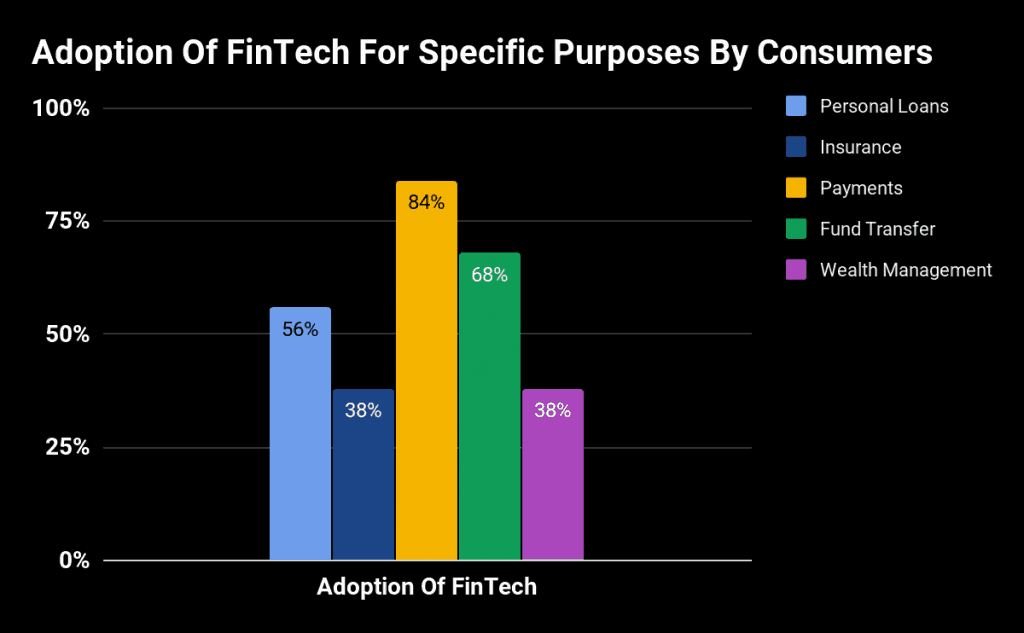 This is a good time to become a FinTech programmer. Programmers are taking part in transforming just about every facet of the global economy. For example, transport and health care have not been spared. The likes of Uber and Fitbit, along with other startups, have disrupted traditional models of industry. Now, as a developer your career options include working in the emerging FinTech industry.
This is a good time to become a FinTech programmer. Programmers are taking part in transforming just about every facet of the global economy. For example, transport and health care have not been spared. The likes of Uber and Fitbit, along with other startups, have disrupted traditional models of industry. Now, as a developer your career options include working in the emerging FinTech industry.
If you are unsure what FinTech is, you can think of Bitcoin, Ethereum, Dash, and other digital currencies for a quick, practical example. In many parts of the world, money has gone digital and new startups are now playing an important role. For example, blockchain trading platforms like CoinDesk enable the efficient exchange of digital tokens.
Many startups are actively growing their teams as part of efforts to change the future of finance. Within these FinTech startups are developers who specialize in this technology. If you're a beginning programmer with an interest in this industry, here is what you should know to get started.
Importance of FinTech
FinTech is an important field for the global economy going forward. As a programmer, there will be opportunities to get jobs or launch venture capital-funded startups in FinTech if you have the right skills.
New developments, such as the growth of financial blockchain applications, have the potential to transform the business landscape. If you can develop blockchain or other solutions for the industry, you will be in high demand.
As disruptive innovation solves problems in new ways, old solutions may become less relevant or less profitable. Even traditional businesses outside of the finance or banking sectors must pay attention.
The rise of financial tech can help not only established businesses conduct trade more efficiently, but it can also be an important advantage for lean startups competing with older companies. This means that FinTech developers will contribute value to both types of companies. Therefore, you get a wide range of jobs, ranging from exciting new startups to established companies where you have more security.
FinTech solutions tend to be cheaper than traditional finance solutions, thus allowing startups with small budgets to develop powerful software that can power new industries. Due to this, the adoption of financial technology in an economy can bring strong and positive multiplier effects to economic growth.
As a developer in this field, you will participate in one of the economy’s growth engines of the future, which means more job security for you.
Data from PwC's Global FinTech Survey 2017 shows that FinTech has already had broad adoption in major sections of not just finance, but also the entire economy. For example, according to the study, 84 percent of customers in the payments industry had already adopted some FinTech solutions for part of their payments. This, however, does not mean getting rid entirely of old solutions, since both are often used side by side by consumers.

As the chart shows, the solutions you will work on as a developer in a financial technology startup or large company will impact different markets. These include personal loans, insurance, payments, and fund transfers.
The benefit to you is that there is a wide selection, so you can choose what interests you. If you like the insurance industry best, you can work with a startup making technology solutions for those companies. If you prefer to work in broadening access to personal loans, you also get the chance to contribute by joining a startup with that focus.
You are able, as a programmer, to choose where your skills will make a difference through financial technology.
The Top FinTech Companies
When it comes to financial technology development, major developed nations in North America and Western Europe take the lead. Newer entrants in emerging markets, however, show great promise for contributing to the proliferation of FinTech-enabled solutions.
As a developer, you will be able to contribute to the growth of the global economy due to the efficiencies that are unleashed by financial technology. Financial technology creates growth not just in the countries exporting financial technology, but even in less-developed countries. This is because financial tech is even more important for countries where old-school finance has not spread evenly.
The new tech will result in higher productivity for customers and companies adopting the technology in these countries. In addition, as a programmer, you will be able to find jobs around the world where your financial technology skills can be used.
European FinTech Scene
Europe has a wide variety of FinTech startups clustered around major financial centers. In the U.K., you will find a concentration of financial technology companies in London. In Germany, look at Frankfurt and Berlin. Switzerland, as a traditional finance center, also has a good number of financial tech startups.
The more notable of Europe's FinTech companies to watch include:
- Azimo – A London startup with over $30 million in funding. Azimo aims to make intercountry money transfers cheaper than with regular banks.
- Yoyo Wallet – A U.K. startup that helps retailers push promotions to buyers through rewards programs.
- Bitbond – A German startup that offers peer-to-peer lending using Bitcoin.
- Avance Pay – Based in Switzerland, this financial technology startup facilitates mobile payments and mobile ticketing solutions for businesses.
FinTech in the US
The U.S. has some of the most exciting and well-funded financial tech startups in the world. A sampling includes:
- Kabbage – Headquartered in Atlanta, this U.S. startup provides fully automated financing for small businesses. The startup is able to service loan requests and provide funding in just minutes using its technology.
- AvidXchange – This FinTech startup provides payments and invoicing solutions for businesses.
- SoFi – Based in California, SoFi helps consumers get ahead with their personal finance goals through technology-facilitated personal loans, mortgage financing, and other financial services.
FinTech Trends to Watch in 2018

Paying attention to these trends will enable you to understand where you can deploy your programming skills to make a positive contribution to the world.
Blockchain and Cryptocurrency Applications
The blockchain is a technology that allows distributed financial applications and other network contracts centered around a shared ledger. Cryptocurrencies such as Bitcoin, Litecoin, and others rely on blockchain technology to run digital currency systems. Understanding blockchain and its impact on financial technology will help you to focus on the right job skills to learn.
Artificial Intelligence
Commonly called A.I., artificial intelligence is the application of technology to replicate human capabilities for complex decision-making. A.I. uses vast quantities of data and pattern-matching to solve problems typically requiring human thought.
Since A.I. can be used in innovative technology, learning it is essential if you want to work with companies that apply A.I., such as driverless car company projects at Google, Uber, or Tesla. For example, a driverless car A.I. solves the problem of navigating a car safely through the streets of an urban city without colliding with other cars or pedestrians.
A.I. has a lot of potential for applications in the management of investments and financial risk. If you want to work with hedge funds that use A.I. in financial markets, you will need to learn how to code A.I. solutions generally, and then how to do it for financial markets specifically.
Understanding FinTech Developers and What They Do
At the heart of it, FinTech developers apply new technology to provide solutions that meet the demands of consumers. For example, financial technology startups around the world provide technology solutions for the following financial services:
- Connecting businesses with equity investors faster than with traditional networking
- E-commerce payment solutions that facilitate real-time digital payments
- Financial markets applications that use artificial intelligence to make better trading decisions
- Digital platforms for entrepreneurs and individuals to access loans more quickly than with traditional banks
- Financial software that uses machine learning to mitigate financial fraud and keep people's money safe
How To Become A FinTech Developer
Becoming a FinTech developer will allow you to play a hands-on role and participate in this exciting industry.
Fintech engineering comes with many rewards, among them a potential six-figure FinTech software engineer salary in locations like Silicon Valley and London. If you know the technology well, you could even launch your own FinTech software startup and shoot for the stars.
Step One: Learn the Best Programming Languages for FinTech
It is important to first get a grounding in an essential FinTech-capable programming language. The most practical for most purposes is, doubtless, Python, which is used broadly on Wall Street and in London by financial engineers.
Many banks have teams that use Python for a plethora of smart data programming. If you already know their language, you will have an easier time integrating with existing financial application systems. A good book for Python with financial applications is Python For Finance: Analyze Big Financial Data by Yves Hilpisch.
For faster, speed-critical applications, most financial institutions in the major centers use a mix of C++ and Java, along with C and some C#. Knowing one of these programming languages would be helpful in joining a FinTech startup or collaborating on a product with a major financial institution. Node.js and Javascript will come in handy for web applications.
Step Two: Learn About Algorithms, Cryptography, and Data
Besides programming languages, you will want to dive into cryptography, blockchain development, and some data science. As artificial intelligence algorithms become ever more important, a solid grounding in data science and deep learning will become essential for the most ambitious FinTech engineers.

Step Three: Apply for Jobs at the Right Companies
As we’ve indicated, jobs for developers in this industry will be found at a mix of startups and older companies with significant roles in the finance industry. If you have honed your technical skills, you should use online platforms like AngelList and LinkedIn to start conversations with these companies. On AngelList, for instance, you can initiate conversations with startup founders and CEOs to sell them on why your skills will be useful for their projects.
You should also attend networking events. For example, in San Francisco, a number of Meetups exist, such as:
Your city will likely have similar events where you can meet company executives and create contacts at firms where you can pitch your programming skills. If you want the best opportunities, you might have to consider relocating to a financial center such as London, New York, or Hong Kong, where startups in the space are concentrated.
Stay Ahead of the Trends as a Developer
In the near future, FinTech companies in Silicon Valley and beyond will make it more possible than ever before to conduct financial activities with effortless convenience. Digital money systems and blockchain applications will be a big part of this revolution.
In addition, expect artificial intelligence and smart bots to enable smarter management of finance for everything from stock investing to personal finance. The future of this industry looks very exciting. If there's a great time to get into FinTech, that time is now.
In the long run, as the industry grows, those with experience will earn higher salaries and find great opportunities with the best-funded startups. For programmers, that makes a young and growing industry like the FinTech industry a great opportunity for career growth.
